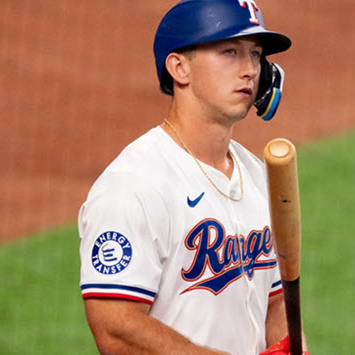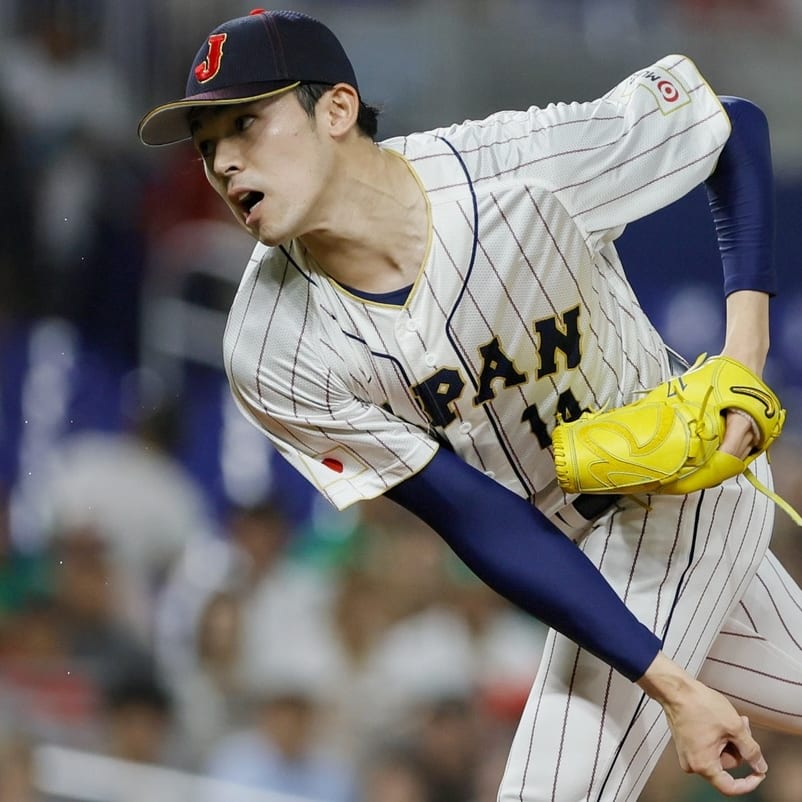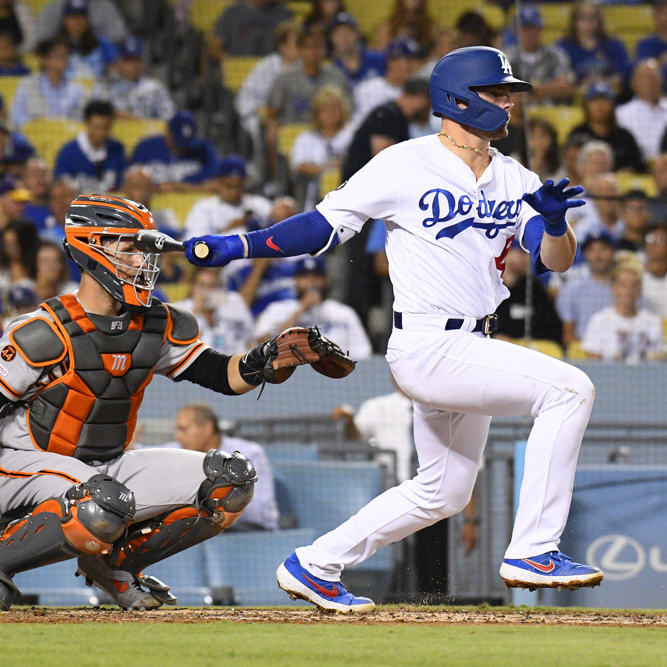This article is part of our John Sickels' Column series.
One of the most exciting young power hitters in the minors right now is Chris Carter of the Oakland Athletics. Let's take a look.
BACKGROUND
Vernon Christopher Carter was drafted by the Chicago White Sox in the 15th round in 2005, out of high school in Las Vegas, Nevada. He was considered very raw when drafted: scouts liked his power, but worried about his ability to make contact and his defensive position, factors which hurt his draft stock. He hit much better than expected in rookie ball, with a .283/.350/.485 mark for Bristol in the Appalachian League, getting himself on the radar quickly. He followed that with a .299/.398/.570 performance in the Pioneer League in 2006. He continued the slugging with a .291/.383/.522, 25 homer season for Kannapolis in the South Atlantic League in 2007. His name got on the national viewscope that offseason, as he was traded to the Diamondbacks for Carlos Quentin, then shortly moved on to Oakland as part of the Dan Haren deal. The Athletics sent him to the California League last year, and he responded by leading the circuit in homers, RBIs, and slugging percentage, though his batting average dropped to .259. He has been outstanding this year for Double-A Midland, hitting .337/.435/.576 with 24 homers, 101 RBI, and leading the Texas League in OPS, OBP, SLG, doubles, runs scored, and walks. He also ranked second in batting average. Promoted to Triple-A Sacramento last week, Carter has hit three homers in his first six games.
TRADITIONAL SCOUTING REPORT
Carter is 6-4, 225 pounds, a right-handed hitter and thrower, born December 18, 1986. He's not a bad natural athlete, with adequate speed and a strong throwing arm, though he'll have to watch his weight as he gets older. Physical strength is his best tool, and he has that in droves: he can crush pitches for pull power. He has refined his overall hitting skills this year, showing more ability to go to the opposite field when needed and closing some holes in his swing, though he still has some vulnerability to sliders away. He works the count well and is patient, looking to get ahead in the count and find a fastball to drive for distance. Although he's hit for average this year, he isn't likely to be a potential batting champion against the best pitching, though with his high walk rate his OBP will be respectable. The main question for Carter remains defense. He's spent time at third base, first base, and corner outfield. He has the arm for third, but his footwork there is substandard and he just doesn't have the range for the position. His glovework at first base is adequate, at best, also hampered by his footwork. In the outfield he needs a lot more polish running routes and reading the ball, and it's possible he's just a born DH. His running speed isn't bad once he gets started, and he's shown some knack for stealing bases this year, though that's not likely to carry forward to the majors.
SABERMETRIC ASSESSMENT
Power and a high walk rate have been constants for Carter. His strikeout rate was very high in 2008, and there was initially some concern about how he would adapt to Double-A pitching. He never waivered at Midland: he got off to a good start in April and maintained the pace throughout the season, being specially effective in August when he hit .424/.528/.800 before moving up to Sacramento, also reducing his strikeout rate. His home/road and left/right splits show nothing unusual. He had some good luck in the BABIP category this year, .406 in Double-A, but that just may be a luck correction from the .296 mark he posted in '08 at Stockton. His MLE's mark him as a .260-.280 hitter at the major league level, with an OBP in the .330-.340 range and 20+ home run power. Given a normal growth curve, he could hit 30+ homers at his peak.
FANTASY INVESTMENT VALUE
Carter's bat will get him to the majors sometime in 2010, and while he may have some contact issues initially, his power will get him plenty of chances. The main question revolves around his position, and right now even Oakland doesn't know how he fits into the future lineup. He's still just 22 years old and has considerable development time left on the clock, so there's no need to rush him just yet. Ultimately it is best to assume he'll wind up at first base or DH; then we can be pleasantly surprised if he ends up somewhere else.
Article first appeared 9/7/09











